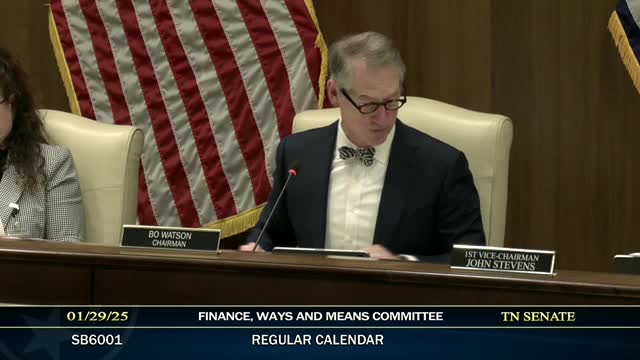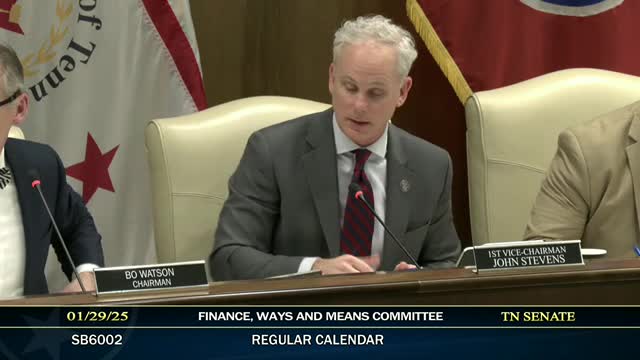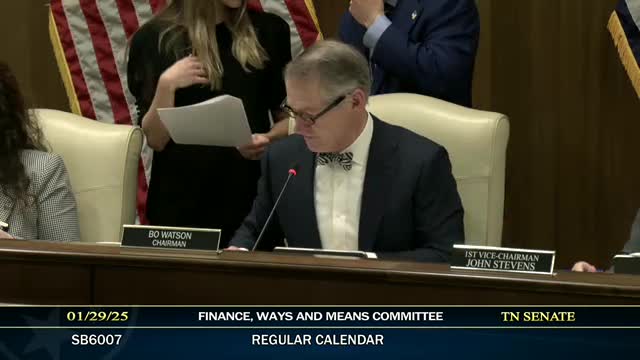Article not found
This article is no longer available. But don't worry—we've gathered other articles that discuss the same topic.

Senate Finance Advances Education Freedom Act with $145M–$148M in Scholarships, $2,000 Teacher Bonus

Senate Finance Backs Centralized Immigration Enforcement Division, $5M Grant Program for Local Agencies

